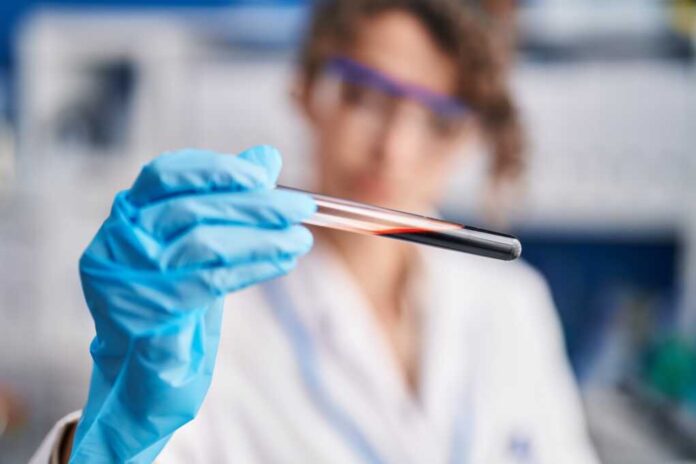
A groundbreaking blood test developed by Johns Hopkins researchers can now detect cancer up to three years before symptoms appear, potentially revolutionizing treatment outcomes for millions of patients worldwide.
At a Glance
- The new blood test detects genetic material shed by tumors in the bloodstream years before traditional diagnosis
- Researchers found cancer-related DNA mutations in blood samples collected up to 3.5 years before clinical diagnosis
- Early detection could dramatically improve treatment outcomes as tumors would be less advanced and more likely curable
- The multicancer early detection (MCED) test could eventually lead to standardized screening for multiple cancer types
- While promising, the test is not yet FDA-approved for widespread use
Finding Cancer Years Before Symptoms
Scientists at Johns Hopkins University have developed a highly sensitive blood test that can detect cancerous changes in the body long before symptoms appear. The study, published in the journal Cancer Discovery, analyzed blood plasma samples from participants in a large NIH-funded cardiovascular disease study. Using advanced genome sequencing techniques, researchers examined blood samples from 52 carefully selected participants – 26 who were diagnosed with cancer within six months of sample collection and 26 who served as a control group.
The test works by identifying circulating tumor DNA (ctDNA) – genetic material that cancer cells shed into the bloodstream. What makes this breakthrough significant is the test’s ability to detect these cancer signatures much earlier than current diagnostic methods. In several cases, researchers found cancer-related mutations in blood samples collected 3 to 3.5 years before participants received their clinical diagnosis, providing a crucial window for early intervention.
Johns Hopkins blood test detects tumor dna three years early | @ScienceDaily https://t.co/MNR0NVllSS
— Neil Floch MD (@NeilFlochMD) June 14, 2025
The Promise of Early Detection
The potential impact of this technology on cancer treatment outcomes cannot be overstated. When cancer is detected at earlier stages, treatment options expand significantly and survival rates improve dramatically. The test used in the study is known as a multicancer early detection (MCED) test, designed to identify cancer-signature molecules in blood samples from multiple cancer types simultaneously.
In the study, eight participants who tested positive in the MCED test were diagnosed with cancer within four months. More remarkably, in six cases, additional blood samples collected 3 to 3.5 years prior showed mutations linked to tumor growth. This demonstrates that cancer’s molecular signatures can be detected years before clinical symptoms develop, potentially transforming how we approach cancer screening and early intervention.
“In a groundbreaking announcement..Australian scientists revealed the revolutionary blood test can detect ovarian cancer in its earliest & most treatable stages”
I #blubbered with joy seeing this but, also being honest, it being too late for #MyJulieRIP❤️ https://t.co/IXDq5oeKno
— Stephen McCormick (@SJA_McC) June 8, 2025
The Future of Cancer Screening
While the test shows enormous promise, it’s not yet FDA-approved for widespread use, though it is available under certain conditions as a Laboratory Developed Test. Researchers emphasize that MCED tests are not intended to replace standard cancer screenings like mammograms or colonoscopies but could help detect cancers that are often diagnosed at advanced stages when treatment options are limited and outcomes are poor.
The technology represents a significant step toward making cancer detection more accessible and less invasive. Current detection methods face challenges including limited availability, lengthy processing times, high costs, and invasiveness. A simple blood draw that can screen for multiple cancer types simultaneously could democratize access to early detection and significantly reduce the global burden of late-stage cancer diagnoses. Researchers are now planning larger-scale trials with more participants to further validate these promising findings.


















